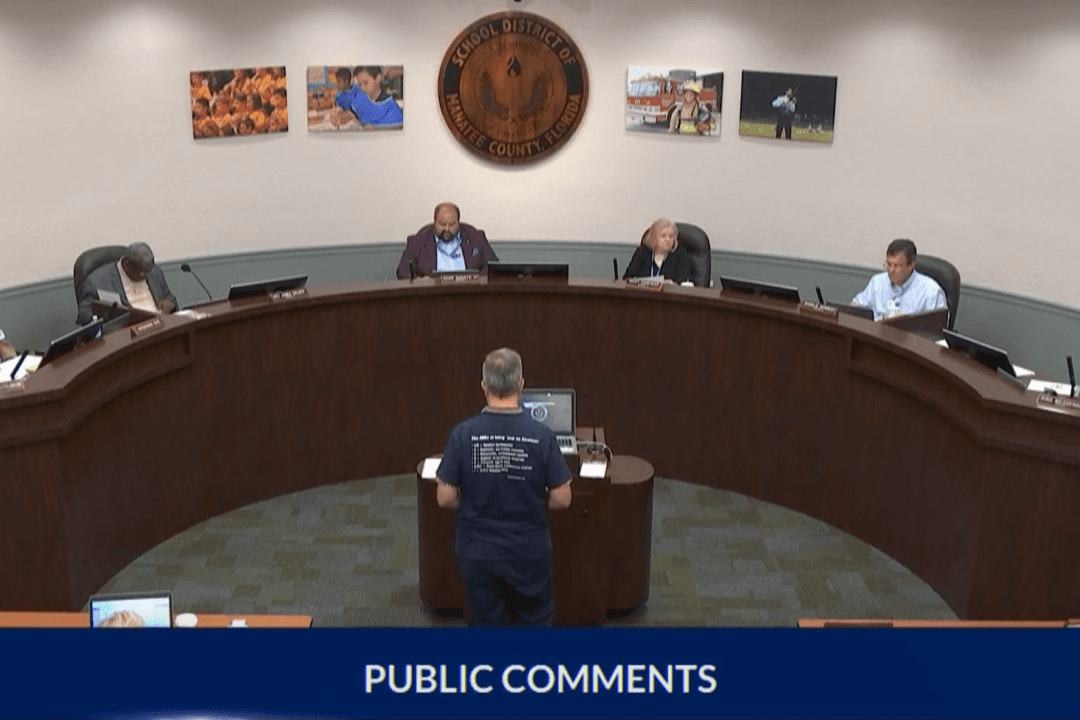Teachers in Manatee County, Florida are scrambling to shut down their classroom libraries out of fear that unapproved books made available to students could violate Florida pornography laws and carry a third-degree felony charge.
The move comes in response to a new rule that provides clarification of Florida House Bill 1467 (pdf). HB 1467 requires books in school library media centers or those included in recommended or assigned reading lists to be selected by an employee with a valid educational media specialist certificate. In Florida, school librarians are called “media specialists” and must have a bachelor’s degree in either library science or educational media.





